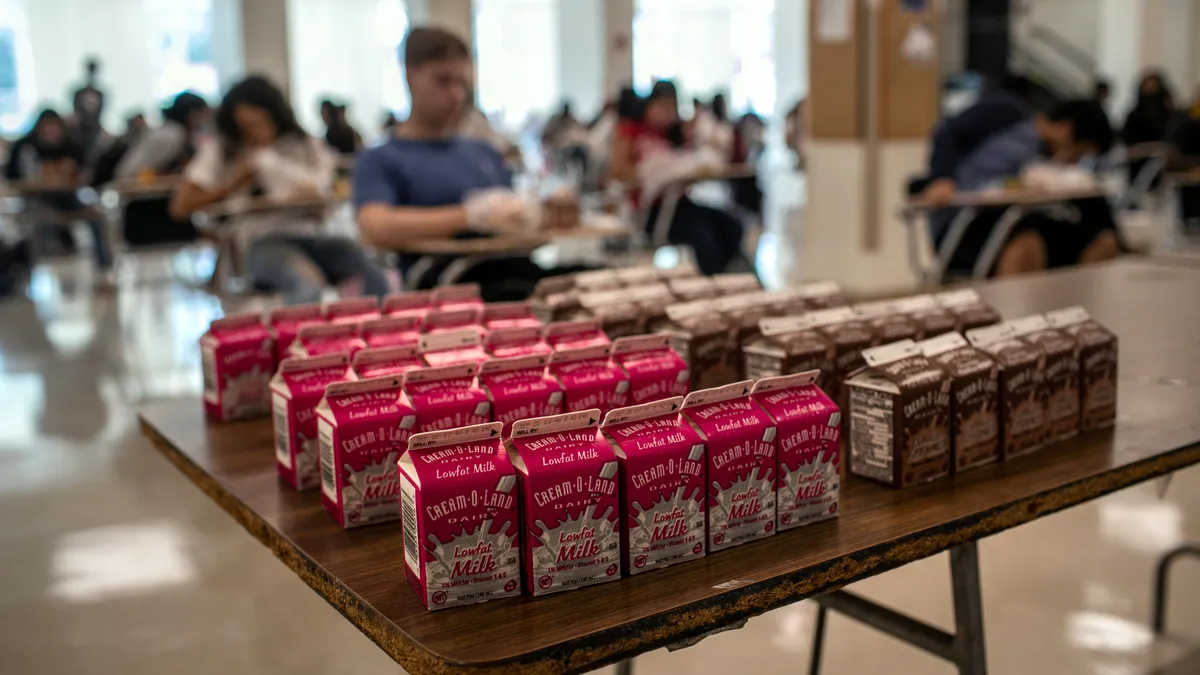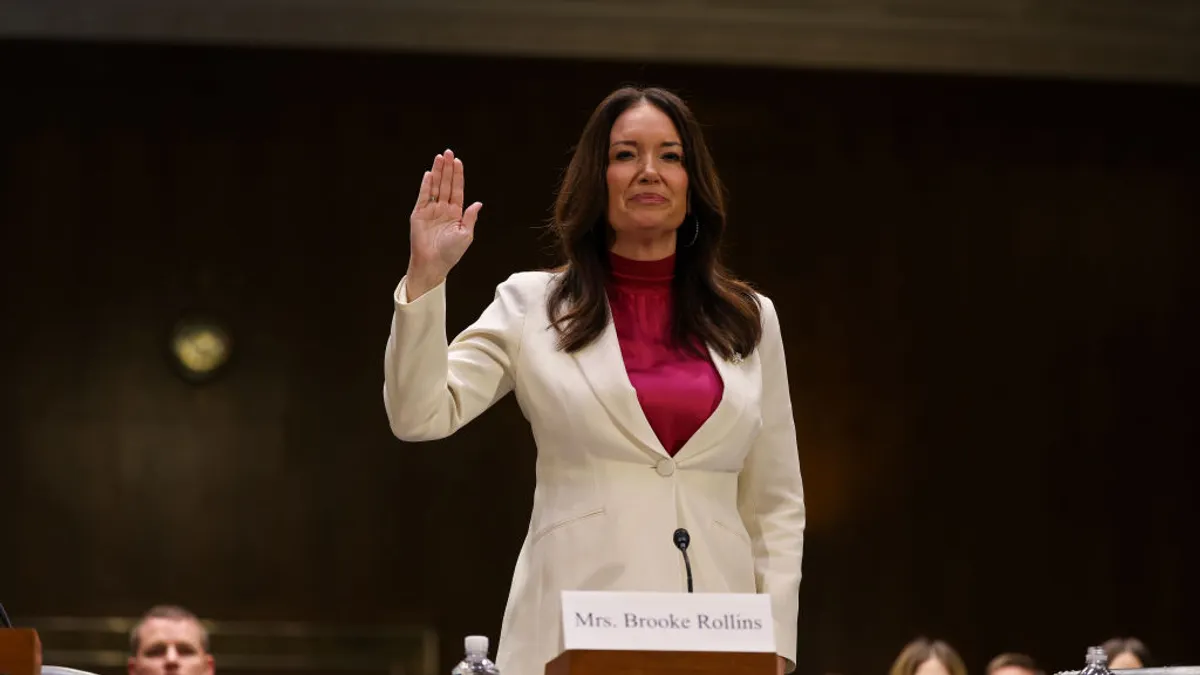Dr. Yami Cazorla-Lancaster is a mother and board-certified pediatrician, certified health and wellness coach and author based in Yakima, Washington.
A big gold star is due for Sen. Debbie Stabenow of Michigan for recently blocking the misnamed Whole Milk for Healthy Kids Act when it came up for a vote. Schools stopped serving full-fat dairy milk more than 13 years ago because of health concerns. Despite these concerns, the Whole Milk for Healthy Kids Act would force schools to offer students whole dairy milk, which is high in saturated fat and poses significant health risks.
As a pediatrician and mother, I can assure you that allowing whole milk to be offered as part of school meals is both unnecessary and harmful to children’s health. Dairy products are the leading source of saturated fat, which raises cholesterol levels and is linked to Alzheimer’s disease, among other conditions. Fat is also the densest source of calories.
The National School Lunch Program is guided by — or at least is supposed to be guided by — the Dietary Guidelines for Americans. The guidelines recommend limiting saturated fat for those 2 years old and older, and whole milk is cited multiple times as a source of saturated fat. In my medical practice, I see children who are already suffering from high cholesterol, high blood pressure and prediabetes even at young ages.

The Whole Milk for Healthy Kids Act would exempt the fat in dairy milk from counting toward the total saturated fat content of school meals, creating a permanent statutory loophole in school nutrition standards to circumvent the Dietary Guidelines and increase the overall saturated fat content in school meals.
Allowing Congress to carve out special exemptions — at the behest of the dairy industry — to school nutrition standards sidesteps the science-based recommendations from the Dietary Guidelines and sets a dangerous precedent.
But don’t take my word for it that these proposed changes are a result of lobbying on the part of the dairy industry. According to a post by the International Dairy Foods Association, the bill passed in the House because of the “direct advocacy of IDFA members at legislative fly-ins, meetings and phone calls with legislators, and virtually through the IDFA Campaign Center.”
The dairy industry is aware that consumption of dairy milk is declining and is focusing on younger consumers. Meanwhile, the market for nondairy milks is expanding at approximately 9% per year.
The dairy industry has multiple organizations advocating for preferential policies before Congress. For example, the National Milk Producers Federation, the International Dairy Foods Association and the Dairy Farmers of America are collectively spending over $1 million a year lobbying Congress.
Organizations dedicated to the health and well-being of children, however, oppose the Whole Milk for Healthy Kids Act. The American Academy of Pediatrics, the Physicians Committee for Responsible Medicine, the Academy of Nutrition and Dietetics, and the American Heart Association are among those opposing the bill.
Congress should be more concerned about addressing the rising levels of high cholesterol and Type 2 diabetes — both linked to consumption of saturated fat, which is found in whole milk — among children. This highlights the need to feed our children healthy food and beverages beginning at the earliest life stages.
In addition to pushing unhealthful whole dairy milk on kids, this legislation would continue barriers that schools and parents face in providing and accessing nondairy substitutes.
Currently, nondairy milks are only required to be served if a parent submits a note from a physician documenting a disability that restricts their child’s diet. Most people of color are lactose intolerant and suffer disproportionately from this burden. Further, lactose intolerance is a specific genetic trait like hair or eye color — not a disability.
Instead of forcing schools to serve whole milk, Congress should advance legislation like H.R. 3276, the Healthy Future Students and Earth Pilot Program Act, which would align school nutrition policies with dietary science and the latest recommendations from organizations like the American Medical Association, which recommends removing barriers for students with lactose intolerance to access nondairy beverages.
At a time when consumers are looking for more nondairy alternatives, and evidence-based nutrition science recommends limiting saturated fat and sodium found in dairy products, some in Congress are ignoring both the market and science by picking winners and losers: The dairy industry wins while our nation’s health loses.
For students’ sake, I am hopeful that Congress will deny the dairy industry its Whole Milk for Healthy Kids Act and instead pursue measures that make it easier for students to receive nutritious nondairy beverages at school.



















